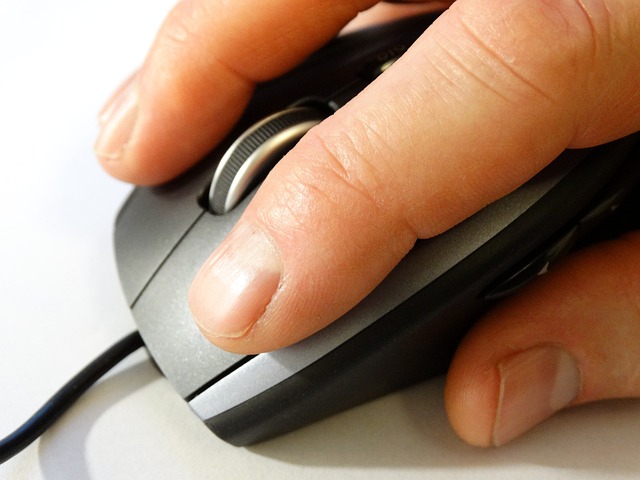Imagine driving on a winding road with no speed limit signs or warning signals. You have no idea what lies ahead, and you can sense danger lurking around every turn.
This is similar to the experience of living with sex addiction – a condition that is often misunderstood and stigmatized. If you or a loved one is struggling with sex addiction, it’s important to know that help is available.
Sex addiction, also known as hypersexual disorder, involves intense and uncontrollable sexual urges and behaviors that negatively impact an individual’s life. These behaviors can range from excessive pornography use to compulsive masturbation to engaging in risky sexual activities.
In this article, we’ll explore the common signs and symptoms of sex addiction so that you can recognize if you or someone close to you may be struggling. By understanding these symptoms, you can take steps towards seeking help and finding effective treatment options for sex addiction.
Understanding Sex Addiction
 You may be surprised to learn that there’s more to sex addiction than just a lack of self-control. This condition is characterized by compulsive sexual behavior that interferes with daily life, relationships, and mental health.
You may be surprised to learn that there’s more to sex addiction than just a lack of self-control. This condition is characterized by compulsive sexual behavior that interferes with daily life, relationships, and mental health.
Sex addiction triggers can vary from person to person, but they often include stress, anxiety, boredom, or past traumas.
If you or a loved one are struggling with sex addiction, it’s important to understand that recovery is possible. However, it requires seeking professional help and developing healthy coping mechanisms for sex addiction. This may involve therapy sessions with a qualified mental health professional who specializes in treating sexual disorders.
In addition to therapy, individuals with sex addiction can benefit from support groups where they can connect with others who share similar experiences and struggles. These groups provide a safe environment for individuals to discuss their feelings without fear of judgment or shame.
Remember that seeking help for sex addiction doesn’t make you weak or flawed; it takes strength and courage to acknowledge the problem and take steps towards healing.
Common Behaviors Associated with Sex Addiction
It’s normal to enjoy sexual activities, but sometimes these behaviors can become compulsive and interfere with daily life, causing distress and potentially leading to negative consequences. If you or a loved one is struggling with sex addiction, it’s important to recognize the common behaviors associated with this condition.
Here are some signs to look out for:
1. Preoccupation with sexual thoughts or fantasies that interfere with daily activities.
2. Engaging in sexual activities despite knowing the potential risks and consequences.
3. Difficulty controlling behavior related to sex, such as compulsive masturbation or seeking out multiple partners.
4. Using sex as a coping mechanism for stress, anxiety, depression or other emotional problems.
These behaviors can have a significant impact on relationships and personal well-being. Sex addiction can lead to feelings of shame, guilt and isolation which can further exacerbate the problem.
It’s important to seek professional help if you or someone you care about is exhibiting any of these signs to prevent further harm. Remember that sex addiction is a treatable condition and recovery is possible through therapy and support from loved ones.
With compassion and understanding, it’s possible to overcome the challenges associated with this disorder and move towards a healthier future.
Emotional and Psychological Symptoms of Sex Addiction
Feeling trapped in a constant cycle of shame, guilt, and isolation can be a devastating emotional toll for those battling compulsive sexual behaviors. Sex addiction often leads to negative consequences in relationships and personal life.
Emotional turmoil such as depression, anxiety, and low self-esteem are common among individuals struggling with this addiction. The guilt associated with compulsive sexual behavior can also lead to feelings of worthlessness and self-hatred.
The impact on relationships can be severe as sex addiction often involves lying, cheating, or engaging in risky sexual behaviors. Individuals may feel disconnected from their partners and have difficulty maintaining healthy communication.
Coping mechanisms such as substance abuse or excessive spending may also develop alongside sex addiction. These behaviors provide temporary relief but ultimately worsen the individual’s overall well-being.
Seeking professional help is essential for managing these symptoms and breaking the cycle of addiction. With proper treatment, individuals can learn to cope with their emotions without resorting to addictive behaviors.
Physical Symptoms of Sex Addiction
So you’ve been going at it like rabbits and you’re starting to feel a little sore? That’s just the tip of the iceberg when it comes to physical symptoms of sex addiction.
While sex is a normal part of life, excessive sexual behavior can have serious consequences on your body. Causes and triggers for sex addiction can vary from person to person, but many individuals use sex as a way to cope with emotional pain or trauma. This can lead to compulsive behaviors that impact relationships, work, and daily life.
One common physical symptom of sex addiction is fatigue. Individuals who engage in excessive sexual activity may experience exhaustion due to lack of sleep or overexertion during sexual encounters.
Additionally, frequent masturbation or intercourse can cause soreness or irritation in the genital area. Some people may also experience sexually transmitted infections (STIs) due to engaging in unsafe sexual practices.
Another physical symptom of sex addiction is injury or harm caused by risky behaviors during sexual activity. Individuals who struggle with compulsive sexual behavior may engage in dangerous activities such as unprotected sex, public indecency, or exhibitionism. These actions can result in physical harm such as bruises, cuts, or infection.
As with any addiction, seeking help is essential for recovery from sex addiction and its associated physical symptoms. If you’re experiencing any discomfort or negative effects related to your sexual behavior, it’s important to speak with a healthcare provider or mental health professional who specializes in treating addictions and compulsive behaviors.
Remember that there’s no shame in seeking help and taking steps towards healing and recovery.
Seeking Help and Treatment Options
If you’re ready to start healing and recovery, there are various treatment options available for those seeking help with compulsive sexual behavior. Seeking professional help is the best way to address sex addiction as it can be a complex issue that requires specialized treatment.
Psychotherapy or talk therapy can be effective in treating sex addiction, especially when combined with other treatments. One of the most effective forms of psychotherapy for sex addiction is cognitive-behavioral therapy (CBT). This type of therapy helps individuals identify negative patterns of thinking and behavior associated with their addiction. CBT also helps develop coping mechanisms and alternative behaviors that promote healthier relationships and sexuality.
Additionally, support groups such as Sex Addicts Anonymous (SAA) or Sexaholics Anonymous (SA) can provide a safe space for individuals to share their experiences, gain insight from others who have been through similar situations, and receive emotional support.
It’s important to note that recovery from sex addiction is a lifelong process that requires time, patience, and dedication. It’s not uncommon for relapses to occur during the recovery process; therefore, it’s essential to seek ongoing support from a therapist or support group even after successful completion of treatment.
Remember that seeking help is a brave step towards healing, and there’s no shame in reaching out for assistance in overcoming this challenging condition.
Can sex addiction be cured completely?
Sex addiction can’t be completely cured, but it can be managed through various stages of recovery and long-term management.
The process involves seeking professional help, such as therapy or support groups like Sex Addicts Anonymous (SAA), to address underlying issues and develop coping strategies.
It also requires a commitment to changing behaviors and avoiding triggers.
Recovery may involve setbacks and relapses, but with determination and persistence, it’s possible to achieve a fulfilling life without the negative consequences of sex addiction.
While complete cure may not be possible, there’s hope for living a healthy life in control of one’s sexual behavior.
Are there any medications available to treat sex addiction?
Are you struggling with sex addiction and wondering if there are any medications available to treat it?
While there are some medications that have been used off-label to reduce or control sexual urges, their effectiveness is limited and they come with potential side effects. In fact, medication alone is rarely effective in treating sex addiction.
Instead, alternative therapies such as cognitive-behavioral therapy, group therapy, and 12-step programs have shown more promise in helping individuals manage their compulsive sexual behavior.
It’s important to consult a mental health professional who specializes in sex addiction treatment to determine the best course of action for your specific situation.
Is sex addiction only related to physical intimacy or can it manifest in other ways too?
Online addiction and emotional intimacy are two ways in which sex addiction can manifest.
Online addiction involves excessive use of the internet for sexual purposes such as watching pornography or engaging in online sexual activities.
Emotional intimacy, on the other hand, refers to using emotional connections with others as a means of seeking sexual gratification. This type of addiction is often characterized by compulsive behavior and an inability to control one’s sexual urges.
It’s important to note that sex addiction is not limited to physical intimacy but can also affect one’s mental and emotional well-being. Seeking help from a qualified healthcare professional can be beneficial for those struggling with sex addiction.
How can one differentiate between healthy sexual behavior and sex addiction?
Normalizing sexuality is an important aspect of sexual health. However, it’s also essential to understand boundaries and be aware of when your sexual behavior becomes problematic.
The line between healthy sexual behavior and sex addiction can sometimes be blurry, but there are some key differences. Healthy sexual behavior involves mutual consent, respect for boundaries, and a desire to connect with another person emotionally and physically.
Sex addiction, on the other hand, involves compulsive behaviors that interfere with daily life and relationships. It’s important to seek help if you or a loved one is struggling with sex addiction as it can have serious consequences on mental health and overall well-being.
Can sex addiction lead to other mental health disorders?
Sex addiction can lead to other mental health disorders, such as depression and anxiety. The effects on relationships can be devastating, causing strain and distance between partners.
It can also have a significant impact on daily life, making it difficult for individuals to focus on work or other responsibilities. Seeking professional help is crucial in managing sex addiction and addressing any potential co-occurring mental health issues.
With the right support and treatment, individuals struggling with sex addiction can regain control of their lives and improve their overall well-being.
Recognizing the signs and symptoms of sex addiction is crucial in seeking help for yourself or a loved one. It can be difficult to confront this issue, but it’s important to remember that you’re not alone and there’s no shame in seeking treatment.
Some may argue that sex addiction isn’t a real disorder, but research has shown otherwise. Remember that recovery is possible and there are various treatment options available such as therapy, support groups, and medication.
Don’t hesitate to reach out for help if you or someone you know is struggling with sex addiction. With the right resources and support, it’s possible to overcome this addiction and lead a fulfilling life.









